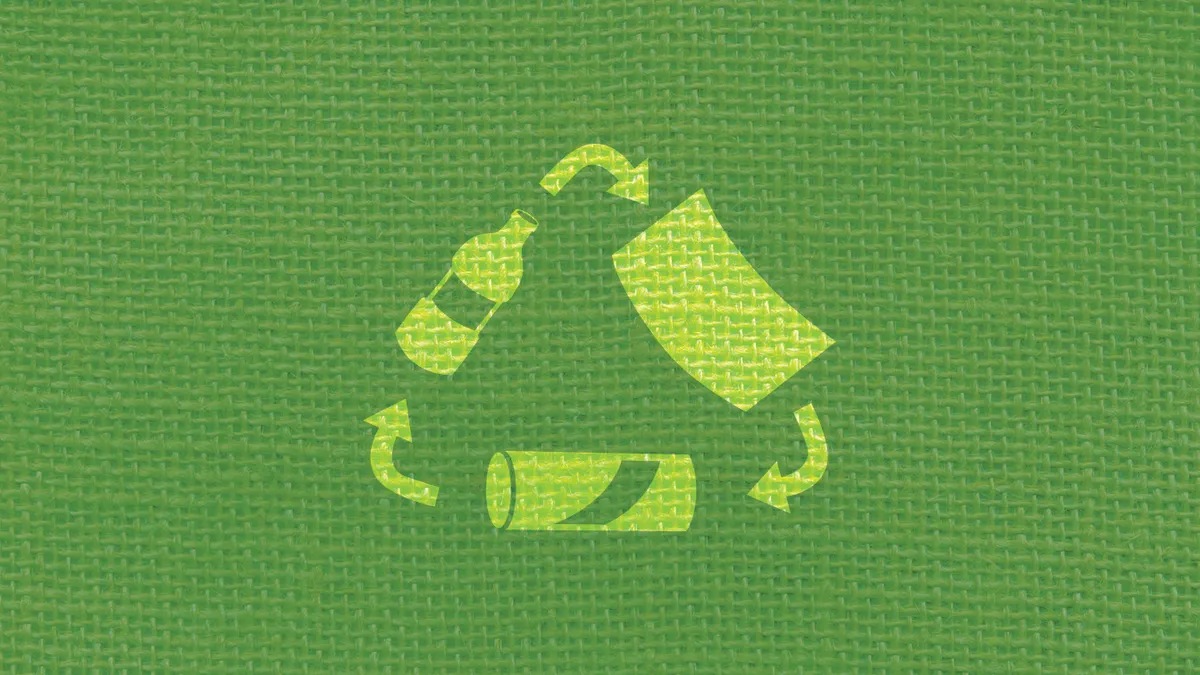FCR, a subsidiary of Republic Services, recently sued Connecticut's Materials Innovation and Recycling Authority (MIRA), a quasi-public agency, in an effort to terminate a MRF operating contract early.
Republic's main contention is that MIRA has been allowing loads to come in with contamination rates much higher than a contractually agreed-upon 5% threshold. According to the company, this is costing more than $3 million per year and forcing it to operate MIRA's MRF "at a substantial loss." The company is also seeking "monetary damages, in an amount to be determined at trial."
MIRA's contract with FCR began in 2013, and the agency has exercised multiple extension options since – including one this year. The contract is currently set to run through June 2020, but MIRA could choose to extend it once more through June 2021.
Republic became party to this contract as part of its ReCommunity acquisition, which happened to close just as the initial effects of China's scrap import policies were being felt in late 2017. Throughout 2018, Republic's desire to reopen contract terms with MIRA became increasingly apparent in local media and conversations. MIRA has refused to budge so far, citing a longer term outlook.
"MIRA decided, and I think prudently so, that it was in our interest to be conservative and negotiate a contract that bars against the down side and to give up most of the upside," Tom Gaffey, MIRA's director of recycling, told Waste Dive. "For many years, we left a lot of money on the table because our material was being sold at very, very high rates, both internationally and domestically. We gave up all that revenue, and FCR enjoyed that revenue for many, many years. I think that when you negotiate a contract in good faith, the parties should stick to the obligations of the contract through the term."
Republic's desire to revisit recycling contract terms is similar to the approach of many in the industry. So far, it appears to be yielding results. As of Republic's Q1 report in April, the company had convinced 21% of municipal customers to agree to price increases and said revenues were on the rise as a result.
"When you have fairness on your side, you have a level of confidence and conviction that makes it pretty easy to keep asking until somebody says yes," President Jon Vander Ark told Waste Dive in May, when asked about broader recycling strategies.
According to Republic, this suit against MIRA is the first time it has taken legal action over a recycling contract since China's scrap import policies initiated tighter market conditions. Aside from the ongoing legal dispute between ABC Disposal and New Bedford, Massachusetts over a recycling collection contract, this situation appears to be unique.
"FCR filed the suit as a last resort after MIRA refused to engage in good faith negotiations, as required in the agreement. FCR continues to hope that MIRA will come to the table to discuss and satisfactorily resolve these matters, but FCR can no longer bear the financial burdens from MIRA failing to live up to its commitments," wrote a spokesperson via email.
The complaint alleges that MIRA is intentionally allowing material to come in from multiple municipalities at once, making it challenging to verify the source of loads. The complaint also alleges MIRA has done little enforcement to combat contamination rates that may be as high as 24-31%, depending on which standards are used. Because this rate is higher than anticipated, the company maintains MIRA has "expanded or changed the scope of services" and participated in "events of default" that provide an opening to terminate the agreement.
"Simply put, MIRA is dumping the problem on FCR. But at the same time, MIRA is unwilling to pay FCR any additional compensation for shouldering the burden of addressing MIRA’s own shortcomings," reads the complaint. "MIRA simply cannot have it both ways."
Such contamination disputes have become increasingly common sticking points in MRF contract negotiations recently, but since this is one of the first instances one could be litigated in court, the details will be important to watch.
MIRA says FCR's agreement to pay for disposal of any residual material above 5% – due to MIRA's concerns about a prior switch to single-stream – is a notable factor. Republic countered that FCR "did not agree to accept at its expense an excessively contaminated recycling stream." Beyond that, however, the true nature of contamination rates – either for the inbound or residual stream – is likely to be the key sticking point. Republic hired MSW Consultants to conduct the audit that led to the 24-31% contamination rate statistic over the course of multiple days, using a protocol the company claims MIRA did not object to.
Given the nature of active litigation, Gaffey declined to comment on specific elements of the dispute but stood by MIRA's stance that it shouldn't have to renegotiate the recycling contract – even if some believe that could potentially lead to tougher negotiations in the future.
"I don't think that's going to matter one way or another. When we're ready to do a new contract, it's going to be based upon what's the current market condition, what is the projection for markets – as best as you could check – and what's the risk. In any contract, the sharing of risk could be altered depending on the markets. We understand what the market is right now," he said, noting that recycling is likely to be a "whole different ball game" by 2021.
Correction: This article has been updated to reflect that FCR agreed to pay for residual material above 5%, not up to 5%.






















